Dear all,
We hope you have been refreshed by your Summer break. The new academic year is starting and it will definitely be different. All the DISC courses will be offered online this Fall. In the Spring we hope to return to Utrecht, but of course that remains to be seen.
On September 1, the submission for the ECC 2021 opened. At the moment we are determining what is possible at the Doelen with the 1,5 meter regulations and also very important: we are making plans for a great online conference as this will be our basis. We hope we can count on the DISC community to make the Dutch edition of the ECC a memorable event!
With best regards,
Henk Nijmeijer,
scientific director
Martha Otte,
DISC secretariat
In the Fall the following courses are scheduled:
Model Reduction for Control, from Linear to Nonlinear Systems ONLINE (September 7 until September 28, 2020)
J. Scherpen
K. Fujimoto
System Identification ONLINE (September 14 until November 2, 2020)
P. Van den Hof
J. Schoukens
G. Bottegal
Input Design and Parameter Estimation for Non-Linear Systems ONLINE (November 16 until December 7, 2020)
H. Stigter
K. Keesman
For the full list of courses offered in 2020-2021 click here
EUROPEAN CONTROL CONFERENCE 2021
June 29-July 2 2021 Rotterdam – De Doelen
https://ecc21.euca-ecc.org/
It is a pleasure to invite you to the first ever HYBRID ECC! Immerse yourself in the field of automatic control and connect with academics and industry professionals either virtually or in person in Rotterdam. We want to give as many delegates as possible the chance to come to Rotterdam while at the same time offering a state-of-the art, high quality and engaging online conference.
Call for papers
To prepare an outstanding technical program we invite you to submit:
The submissions will be evaluated by the Conference Editorial Board and International Program Committee. The accepted papers will be indexed and published on the IEEE Xplore digital library.
Furthermore, we also welcome submission of:
All papers, invited session proposals, pre-conference workshop proposals and tutorial proposals must be submitted electronically through the PaperCept Conference Management System.
Important dates
September 1, 2020: Submission opens
November 6, 2020: Submission deadline for papers, invited session proposals and invited papers
December 21,2020: Submission deadline for workshop proposals
January 30, 2021: Submission deadline for extended abstracts
February 26, 2021: Acceptance / rejection decision
March 1, 2021: Final submission and registration open
March 28, 2021: Final submission papers, invited session proposals, invited papers and extended abstracts closes
Organising committee
General Chair: Henk Nijmeijer (Eindhoven University of Technology)
IPC Chairs: Jacquelien Scherpen (University of Groningen) & Maurice Heemels (Eindhoven University of Technology)
NOC Chair: Hans Hellendoorn (Delft University of Technology)
Financial Chair: Robert Babuska (Delft University of Technology)
Registration Chair: Bart De Schutter (Delft University of Technology)
Invited Sessions Chair: Kristin Pettersen (Norwegian University of Science and Technology)
Industrial Chair: Marcel Heertjes (Eindhoven University of Technology)
Tutorial Sessions Chairs: Birgit Jacob (University of Wuppertal) & Hans Zwart (University of Twente)
Workshops Chair: Francesco Vasca (University of Sannio)
ECC Editorial Board Chair: Antonella Ferrara (University of Pavia)
Sponsor Chair: Bayu Jayawardhana (University of Groningen)
We look forward to welcoming you to the ECC 2021!
As NMO (National Member Organisation) DISC can nominate TC member nominations and Industry Committee members for the triennium 2020-2023. A list of TC’s can be found here: https://www.ifac-control.org/areas
If you are interested in joining or want to nominate someone, please contact Henk Nijmeijer and Martha Otte before September 24, so we can discuss with you which information you need to provide.
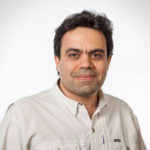 The European Research Council has awarded an ERC Starting Grant to Peyman Mohajerin Esfahani, researcher at Delft Centre for Systems and Control. Mohajerin Esfahani’s research focuses on decision-making problems in uncertain and dynamic environments, with applications in control and security of large scale and distributed engineering systems.
The European Research Council has awarded an ERC Starting Grant to Peyman Mohajerin Esfahani, researcher at Delft Centre for Systems and Control. Mohajerin Esfahani’s research focuses on decision-making problems in uncertain and dynamic environments, with applications in control and security of large scale and distributed engineering systems.
Recent developments in sensing and communication technology offer unprecedented opportunities by ubiquitously collecting data at high detail and at large scale. Utilization of data at these scales, however, poses a major challenge for control systems, particularly in view of the additional inherent uncertainty that data-driven control signals introduce to systems behaviour. This effect has not been well understood to this date, primarily due to the missing link between data analytics techniques in machine learning and the underlying physics of dynamical systems.
Mohajerin Esfahani addresses this issue by proposing a novel control design paradigm embracing ideas from the emerging field of distributionally robust optimization (DRO). DRO is a decision-making model whose solutions are optimized against all distributions consistent with given prior information. Recent breakthrough work, among others by the PI of this proposal, has shown that many DRO models can be solved in polynomial time even when the corresponding stochastic models are intractable. DRO models also offer a more realistic account of uncertainty and mitigate the infamous post-decision disappointment of stochastic models.
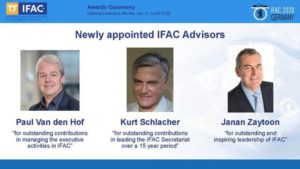
Those of you who have attended the opening session of the IFAC World Congress , may have noticed that Paul Van den Hof has been appointed as “IFAC Advisor”. This is a rather prestigious title and lifetime appointment meant for people that have performed leadership positions in IFAC, and that can be consulted by IFAC on any matter related to the Federation.
After Prof. Piet Eykhoff (TU/e), who was an IFAC advisor until the beginning of this century, it is only the second advisory appointment from the Netherlands.
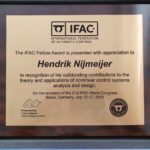 Henk Nijmeijer has been elected as IFAC Fellow. This award is given to persons who have made outstanding and extraordinary contributions in the field of interest of IFAC, in the role as an Engineer/Scientist, Technical Leader, or Educator. Henk Nijmeijer received the award for contributions to the theory and applications of nonlinear control systems analysis and design.
Henk Nijmeijer has been elected as IFAC Fellow. This award is given to persons who have made outstanding and extraordinary contributions in the field of interest of IFAC, in the role as an Engineer/Scientist, Technical Leader, or Educator. Henk Nijmeijer received the award for contributions to the theory and applications of nonlinear control systems analysis and design.
A special issue of Sustainability (ISSN 2071-1050). This special issue belongs to the section “Sustainable Agriculture”. Deadline for manuscript submissions: 15 February 2021.
See https://www.mdpi.com/journal/sustainability/special_issues/Intelligence_Farming for more information. Contact the editors if you are interested in contributing.
Wageningen University has a position for an Assistant professor in Self-learning control for autonomous agricultural production systems (Tenure Track).
Delft University of Technology
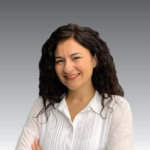 Name: Yasemin Vardar
Name: Yasemin Vardar
Starting date: 1-09-2020
Function: Assistant Professor
Email: Y.Vardar@tudelft.nl
Group: CoR
On September 1, I have joined to the Human-Robot Interaction section as an Assistant Professor. My new group will be a part of David Abbink’s Delft Haptics Lab. My research focuses on gaining a better understanding of human tactile sensation with the aim of creating new haptic interfaces that enable users to interact with virtual environments. For example, much of my research explores ways that future phones and tablets could provide users with a broad range of realistic and controllable haptic experiences. You can find more information in my personal website.
Before joining to TU Delft, I was a Postdoctoral Researcher at the Haptic Intelligence Department of the Max Planck Institute for Intelligent Systems (Stuttgart, Germany). I earned my Ph.D. in Mechanical Engineering from Koç University (Istanbul Turkey). Before my Ph.D., I worked as a Control Engineer at TNO (Eindhoven, The Netherlands). I received my M.Sc. degree in Systems and Control at the Eindhoven University of Technology, and my B.Sc. degree in Mechatronics Engineering from Sabanci University (Istanbul, Turkey).
I enjoy doing sports (hiking, running, cycling, and playing squash), dancing, and traveling in my free time.
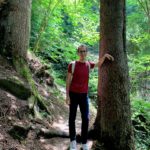 Name: Cosimo Della Santina
Name: Cosimo Della Santina
Starting date: 01-09-2020
Function: Assistant professor
Email: C.DellaSantina@tudelft.nl
Group: CoR
Supervisor: Jens Kober
On September 1 I started at CoR, in the Learning & Autonomous Control section with Jens as my supervisor. I did my studies (Bachelor in Computer Engineering, Master in Control Theory, PhD in robotics) in Pisa, Italy, close to the city where I was born, Pontedera. I was a Visiting PhD student and a postdoc (2017 to 2019) of the Computer Science and Artificial Intelligence Laboratory (CSAIL), Massachusetts Institute of Technology (MIT), USA. From 2020, I am affiliated to the German Aerospace Centre (DLR) as an external research scientist. For the first eight months of the same year I also held a postdoc position at the department of Informatics, Technical University of Munich (TUM), Germany.
My research is mostly focused on “building a brain” (aka Learning, Control, Perception, Intelligent Design) for soft robots and soft hands, in the model based way. I have also a number of tangent research interests – for example theory of nonlinear oscillations, control of classic rigid robots, human motor control, and pandemics control.
Outside research/sciency stuff, I love to watch movies (all time favorite directors: Hitchcock and Carpenter).
I also like music (I kind of play electric bass and synthesizers), to walk (or run!) in the nature, to eat good food, and drink good coffee (I am Italian after all!).
Eindhoven University of Technology
Name: Dorus van Dinther
Starting date: 01-09-2020
Function:PhD
Group: CST
Supervisor: Maurice Heemels & Marcel Heertjes
Hi, my name is Dorus and I am 24 years old. I’ll start my PhD project at the Control Systems Technology group in September at the Eindhoven University of Technology. During my PhD project, I will be investigating fair incentive schemes with artificial currencies in order to ‘nudge’ self-interested traffic users in sustainable mobility systems towards a societally-optimal solution in terms travel time, comfort, and sustainability among others. I received both the BSc and MSc degree in Mechanical Engineering in Eindhoven, the latter within the Control Systems Technology group. During my master’s degree I worked for three months on stabilizing quantized control under Denial-of-Service attacks at the Department of Computer Science at the Tokyo Institute of Technology, under supervision of Hideaki Ishii. During my graduation project I worked on the performance of Hybrid Integrator-Gain Systems as a remedy for fundamental linear control limitations and an application on an industry-standard system, under supervision of Maurice Heemels and Marcel Heertjes. Next to my research interests, I like to spend my time speed skating and cycling.
University of Groningen
 Name: Elizabeth Wilhelm
Name: Elizabeth Wilhelm
Function: Assistant professor
Group: Discrete Technology & Production Automation (DTPA)
Dr. Elisabeth Wilhelm received the doctoral degree in mechanical engineering from Karlsruhe Institute of Technology (KIT) in 2015. For her doctoral thesis on the development of a microfluidic Braille display, she was awarded the “Deutsche Studienpreis”. From 2015 to 2016, she was visiting researcher at the Human Robotics Group at Imperial College London. During this time, she developed a robot for investigating tactile sensation in stroke patients. Since 2016, she has been working as postdoctoral researcher in the Sensory-Motor Systems Lab at ETH Zürich. She has been responsible for developing several robotic beds, which provide sensory stimulation or postural interventions to patients with various sleep disorders. Some of these beds, were equipped with in-built sensors. For these sensors, she developed algorithms by using machine learning techniques. These algorithms enable the bed to react to the needs of the sleeping user in a closed-loop manner.
Her research focuses on robotics for rehabilitation and assistive devices, artificial sensory stimulation, real-time bio-feedback and human-machine interaction.
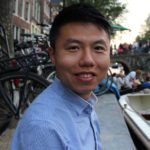 Name: Shuai Feng
Name: Shuai Feng
Function: Postdoc
Email: s.feng@rug.nl
Group: Discrete Technology & Production Automation (DTPA)
Supervisor: Prof. Jacquelien Scherpen
Project: Incentives and algorithms for efficient, reliable and socially acceptable energy system integration (ERSAS)
The short description of the project is as follows: This project aims to study how to develop efficient, reliable, sustainable and socially acceptable (decentralised) energy system integration (ESI) from an interdisciplinary perspective. We will examine how to synergise infrastructure for gas, electricity and heat, and how to promote efficient use of such energy system by end users. The task of the researchers in systems & control is to examine how to synergise and couple infrastructure for gas, electricity and heat, and develop control algorithms that enhance the efficiency, stability and sustainability of such integrated energy systems. In the psychological sub-project, the researchers will study the conditions under which different incentives are effective, as well why different incentives are (not) effective. Together, we will study how effective incentives can be integrated in the algorithms aimed to control integrated energy systems. Also, we will study which factors affect the willingness of users to accept and use the proposed integrated system functionalities.
 Name: Rodolfo Reyes-Báez
Name: Rodolfo Reyes-Báez
Function: Researcher and lecturer FSE fellow
Email: r.reyes.baez@rug.nl
Group: Discrete Technology and Product Automation (DTPA), ENTEG
Supervisor: prof.dr. Bayu Jayawardhana
¡Hola! I am Rodolfo from the beautiful and historical City of Puebla in Mexico. As of July 2020, I am a researcher and lecturer FSE fellow in systems and control engineering at the Faculty of Science and Engineering (FSE) of the University of Groningen. My current research interests are: nonlinear systems and control design, (data) energy based modeling for control, and learning-based dynamics and control. These research interests are mainly motivated by control problems in: (bio/soft-)robotics & (opto-)mechatronics, renewable energy, and smart industry.
I got my BSc (2011,Puebla City) and MSc (2014, Mexico City) degrees in Mechatronics from the Autonomous University of Puebla (BUAP), and the Center for Research and Advanced Studies (CINVESTAV), respectively. I also hold a PhD (2019, Groningen) degree in Systems and Control from the University of Groningen, under supervision of prof.dr. Arjan van der Schaft and prof.dr. Bayu Jayawardhana, where I focused on the trajectory tracking control and group coordination problems of mechanical systems using energy-based models, contraction analysis and passivity. After this, from January 2019 till July 2020, I was a research control engineer of wind energy systems with the Wind Energy Unit at TNO Energy transition (former ECN) in Petten, North-Holland. Before coming to the Netherlands, during 2014, I worked as lecturer of mechatronics and control at the Mexico Autonomous Institute of Technology (ITAM) in Mexico City. Apart from the professional work, I enjoy cooking (mainly Mexican food), dancing latin music and having a good (strong) beer with friends.
 Name: Mohd Khalil Abu Hantash
Name: Mohd Khalil Abu Hantash
Function: PhD student
Email: m.k.j.k.abu.hantash@rug.nl
Group: Discrete Technology and Production automation
Supervisors: Prof. Ming Cao, Prof. Bart Verkerke, Dr. Elisabeth Wilhelm
Project: Decision-support system (DSS) that derives one’s health condition from wearable sensors
I am a biomedical engineer master graduate from the University of Groningen. I am passionate about programming, data analysis and machine learning, and I am interested in doing research on personalized medicine, early prediction, diagnostic automation, and the design of smart algorithms driven by big data. There is a lot to learn in this fast-growing and exciting field. My goal is to become an expert in the field and apply my knowledge to bring advancement in medical technologies and make improvements to the quality of life.
Delft University of Technology
Candidate: Tomas Pippia
Group: DCSC
Thesis: Model-based control for hybrid and uncertain smart energy systems
Promotor: Prof.dr.ir. B. De Schutter
Date: 07-09-2020
Time: 10.00
Candidate: Sebastiaan Mulders
Group: DCSC
Thesis: Wind turbine control: advances for load mitigations and hydraulic drivetrains
Promotor: Prof.dr.ir. J.W. van Wingerden and Prof.dr.ir. M. Verhaegen
Date: 11-09-2020
Time: 12.30
Candidate: Bart Doekemijer
Group: DCSC
Thesis: Closing the loop in model-based wind farm control
Promotor: Prof.dr.ir. J.W. van Wingerden
Date: 16-09-2020
Time: 15.00
Candidate: Jesus Lago Garcia
Group: DCSC
Thesis: Incentivizing renewables and reducing grid imbalances through market interaction: A forecasting and control approach.
Promotor: Prof.dr.ir. B. De Schutter
Date: 28-09-2020
Time: 15.00
Candidate: Joost van der Weijde
Group: CoR
Thesis: Self-Sensing of Coil Springs and Twisted and Coiled Polymer Muscles
Promotor: Prof.dr. R. Babuska
Date: 17-9-2020
Location: Aula, TU Delft
Time: 12.30
Eindhoven University of Technology
Candidate: Daniel Veldman
Group: Dynamics and Control
Thesis: Modeling and Control of Thermomechanical Systems: Managing Heat-induced Deformation in Extreme Ultraviolet Lithography
Promotor: Prof.dr. H. Nijmeijer & Prof.dr. H.J. Zwart
Date: 11-9-2020
Time: 14.00
The next issue of this Newsletter will appear in October 2020.
We encourage the contributors to provide newsworthy information. In principle, we intend to publish any message offered. However, we reserve the right to edit certain parts of a submission.
Please send your contributions to: m.w.otte@tudelft.nl
You receive this newsletter because you are a member of DISC. If you want to be removed from the mailing list, please let us know by sending an email to m.w.otte@tudelft.nl